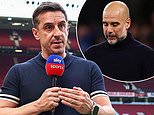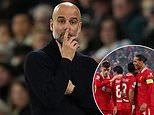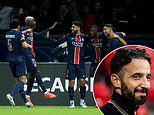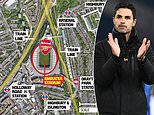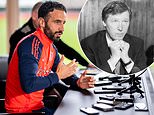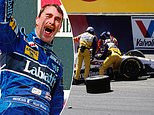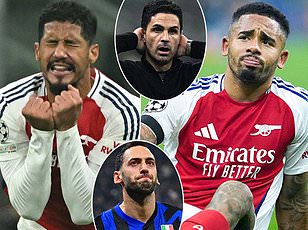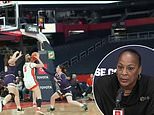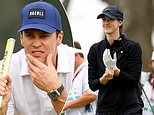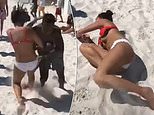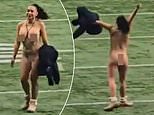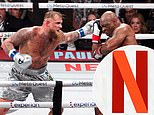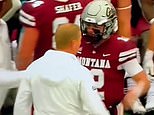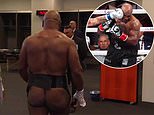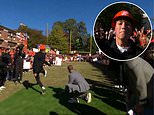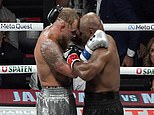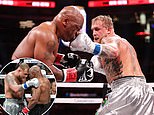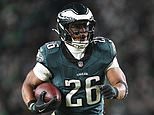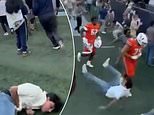Without Martin Odegaard, Arsenal resorted to launching 46 crosses at Inter Milan... they MUST find a better Plan B, writes IAN HERBERT
- Inter Milan were comfortable against Arsenal's direct approach on Wednesday
- Mikel Arteta's side lacked adaption and guile in their narrow 1-0 defeat
- LISTEN NOW: It's All Kicking Off!, available wherever you get your podcasts. New episodes every Monday and Thursday
The Italian glee about beating Arsenal was all the greater because Inter Milan had not, by any means, pulled out all the stops. Five key personnel were rested ahead of Sunday's top of the table Serie A clash with Napoli and yet they were still worth their win. 'It was a night of glory for Milan,' Corriere della Serra declared here.
Arsenal have a big occasion of their own on Sunday afternoon, of course. It's Stamford Bridge next. Mikel Arteta rested no one, flew out of Milan with nothing late on Wednesday, and when the dust settled on the 1-0 defeat, one sobering piece of data demonstrated how flair and creative sophistication have melted out of his team.
Arsenal launched no fewer than 46 crosses, including corners, against Inter - a one-dimensional form of aerial attack which was a far cry from the neat, incisive triangles we have seen from them at their best. And the strategy was neutered, at that.
The team's number of crosses from open play was 33 - nearly double their season average - and though the mere 15 per cent success rate proved how adeptly Inter Milan dealt with this, the strategy simply did not change as the night wore on. There was no guile. No adaptation.
It didn't quite equate to the ultimate example of a manager over-compensating for the lack of a creative midfield – David Moyes' Manchester United piling in 81 crosses against Fulham in 2014 and Dan Burn dealing with almost of all of them. But Inter saw it coming and were well equipped, with Yann Bisseck and Stefan de Vrij dominant. Simone Inzaghi's unusually defensive approach, was a source of surprise in Milan, but nobody was grumbling.
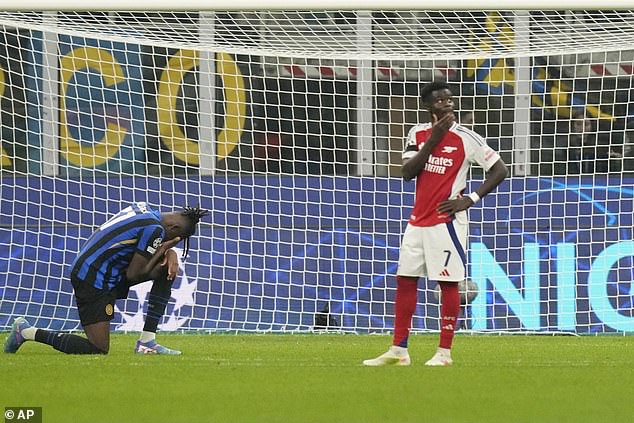
Arsenal suffered their first defeat of the Champions League campaign, losing 1-0 to Inter Milan
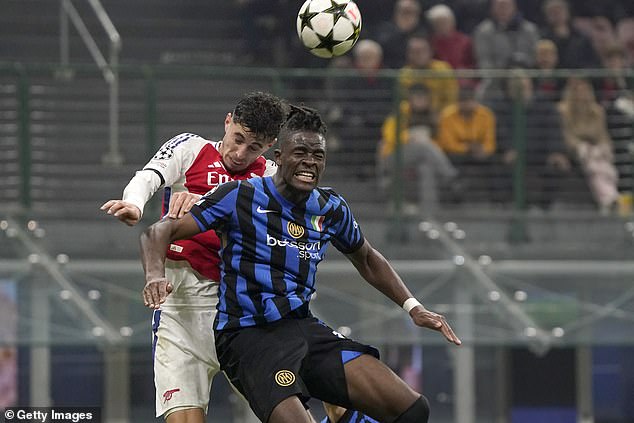
The Gunners launched in 46 crosses, including corners, during the match at the San Siro
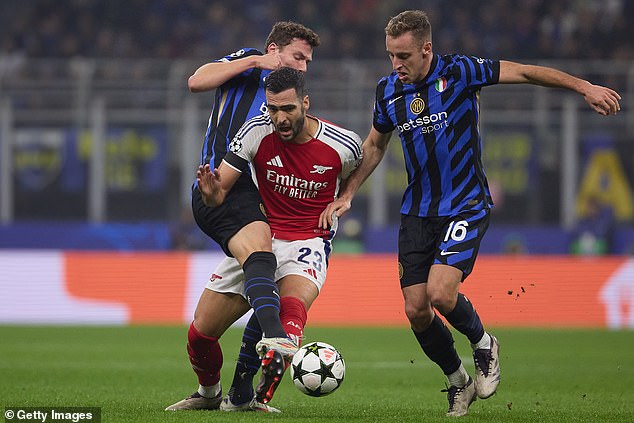
Mikel Merino lined up in a workmanlike midfield alongside Thomas Partey on Wednesday night
Arsenal strategy, feeding two strikers in the same 4-4-2 formation which looked so laborious at Newcastle last weekend, was by no means a million miles from George Graham's ethos and necessity has been the mother of this invention. In the absence of Martin Odegaard since August 31, the sole creative fulcrum in the midfield has gone. Needs must.
Graeme Souness, who knows more than most about the balance between creating and defending in the midfield, discussed what he saw as a critical Arsenal problem last month. 'I look at Arsenal's midfield - without Odegaard - and there is no guile or imagination there,' he wrote on these pages. 'Declan Rice and Thomas Partey are two honest players, but the strongest part of their game is their defensive heads.' Souness feels Arsenal have become too dependent on Odegaard for creativity.
There has been no like-for-like replacement in Odegaard's absence, from Arteta. In the past two games he has scrapped a three-man midfield entirely and put two holding players in there.
On Wednesday night, Partey - a full back - was in the space with Mikel Merino, while Leandro Trossard, at his best as an impact forward arriving from the bench, being asked to help out. Thrusts on goal were effectively limited to speculative launches by Gabriel Martinelli, the only Arsenal attacker who runs in behind defences regularly, and Bukayo Saka's set-piece delivery. The Italian champions' players were simply not tested one-on-one.
The data from all Arsenal's games since Odegaard's first start for the club, against Leeds United in February 2021, shows an average of 168 passes in the final third when he plays and 154 when he is missing. The passing differential when he is absent has become far more acute in the past year.
There were compensations when Arteta had creative players like Emile Smith Rowe and Fabio Vieira. But they are now gone and the manager also seems disinclined to compensate for the loss with Jorginho - a fringe player this season, despite the creative midfield dimension he brings. Or Oleksandr Zinchenko - whom Arteta curiously appears to have dismissed as a midfield option. He only ever deploys him as a wing back.
Reverting to the more direct approach witnessed in Milan would be more logical if Arsenal had invested in a top-class striker this summer. The decision that Ivan Toney was too expensive - a deal was not even close - brings a painful footballing cost in challenging weeks like this.
The irony of Sporting Lisbon's Viktor Gyokeres helping his club hammer Manchester City in a week when Arsenal have looked so blunt will be lost on no one in the club's players acquisition team. The Swede was another Arsenal liked but was deemed too expensive. Jonathan David at Lille and Evan Ferguson at Brighton were others Arsenal though about in the summer.
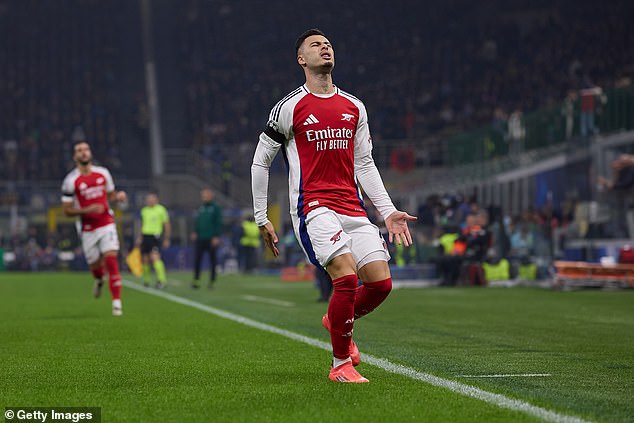
Gabriel Martinelli was the only Arsenal attacker who runs tried to run in behind the defence
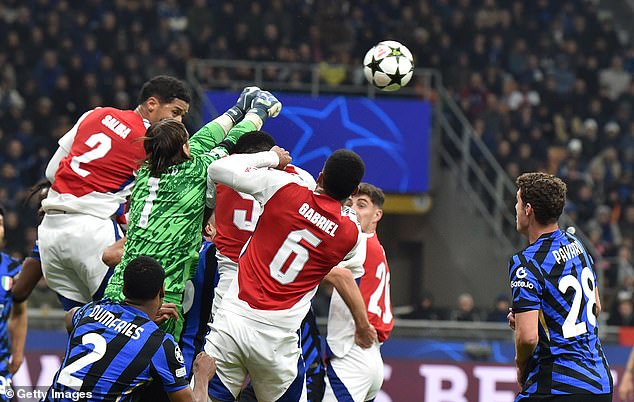
Arsenal's direct approach would have been more logical had they invested in a top class striker
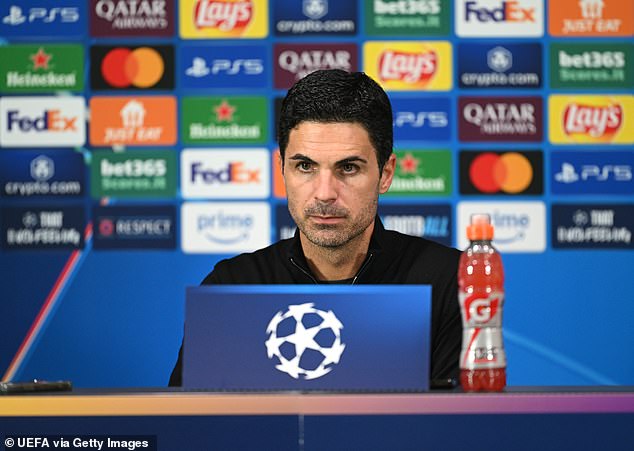
Arteta cut a defensive figure when discussing Arsenal's narrow defeat to Inter Milan

Arsenal's approach showed the importance of Martin Odegaard, who came on for five minutes
Arteta cut a distinctly defensive figure when he sat down in the San Siro press conference room to discuss the 1-0 defeat late on Wednesday. But the inconvenient truth is that Arsenal appear to have overcompensated on physicality and the recruitment of a new sporting director, to deal with that, could take as long as six months.
For now, Odegaard's five minutes of football from the bench Milan promises his own imminent return, possibly this Sunday, with all the lubrication he applies to Arsenal's machine. Since his debut, the team have scored 25 per cent fewer goals without him. Their win percentage is 66.4 per cent when he plays, 48 per cent when he doesn't.
No player has created more open play chances in the Premier League since the beginning of last season than the 93 he has carved out. And his progressive passing will also help Saka, who has remained productive despite his touches dropping from 60.2 per 90 to 50.5 per 90.
More broadly, Arteta's players simply need the lift. Any kind of lift. They looked dead on their feet after Wednesday night's full-time whistle, physically and emotionally drained, wondering where the fun had gone in their football.



